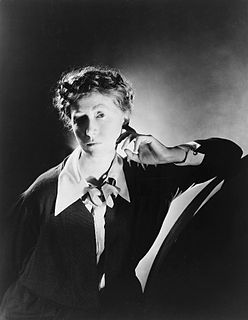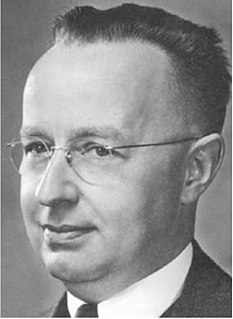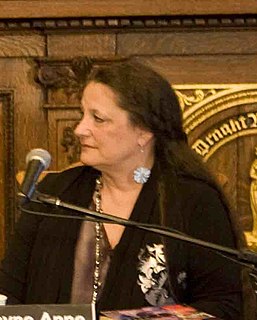A Quote by Marianne Moore
A man is a writer if all his words are strung in definite sentence sounds.
Related Quotes
Every sentence has a truth waiting at the end of it and the writer learns how to know it when he finally gets there. On one level this truth is the swing of the sentence, the beat and poise, but down deeper it's the integrity of the writer as he matches with the language. I've always seen myself in sentences. I begin to recognize myself, word by word, as I work through a sentence. The language of my books has shaped me as a man. There's a moral force in a sentence when it comes out right. It speaks the writer's will to live.
sentences were used by man before words and still come with the readiness of instinct to his lips. They, and not words, are the foundations of all language. ... Your cat has no words, but it has considerable feeling for the architecture of the sentence in relation to the problem of expressing climax.
The ear is the only true writer and the only true reader. I know people who read without hearing the sentence sounds and they were the fastest readers. Eye readers we call them. They get the meaning by glances. But they are bad readers because they miss the best part of what a good writer puts into his work.
The writer learns to write, in the last resort, only by writing. He must get words onto paper even if he is dissatisfied with them. A young writer must cross many psychological barriers to acquire confidence in his capacity to produce good work-especially his first full-length book-and he cannot do this by staring at a piece of blank paper, searching for the perfect sentence.
Every sentence in order to have definite scientific meaning must be practically or at least theoretically verifiable as either true or false upon the basis of experimental measurements either practically or theoretically obtainable by carrying out a definite and previously specified operation in the future. The meaning of such a sentence is the method of its verification.
Most people write the same sentence over and over again. The same number of words-say, 8-10, or 10-12. The same sentence structure. Try to become stretchy-if you generally write 8 words, throw a 20 word sentence in there, and a few three-word shorties. If you're generally a 20 word writer, make sure you throw in some threes, fivers and sevens, just to keep the reader from going crosseyed.
I was always aware, reading Chesterton, that there was someone writing this who rejoiced in words, who deployed them on the page as an artist deploys his paints upon his palette. Behind every Chesterton sentence there was someone painting with words, and it seemed to me that at the end of any particularly good sentence or any perfectly-put paradox, you could hear the author, somewhere behind the scenes, giggling with delight.
The writer is a definite human phenomenon. He is almost a type - as pugilists are a type. He may be a bad writer - an insipid one or a clumsy one - but there is a bug in him that keeps spinning yarns; and that bulges his brow a bit, narrows his jaws, weakens his eyes and gives him girl children instead of boys. Nobody but a writer can write. People who hang around writers for years - as producers did - who are much smarter and have much better taste, never learn to write.
Words were one of the most powerful forces known— or unknown— to man. The Most High had created this world with His words. And humans, who had been fashioned in His image, could direct the entire course of their lives with their words, their mouths as the rudder on a ship, as the bridle on a horse. They produced with their words. They destroyed with their words.







































